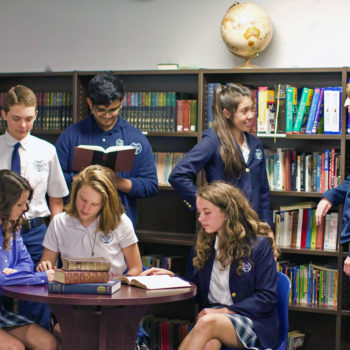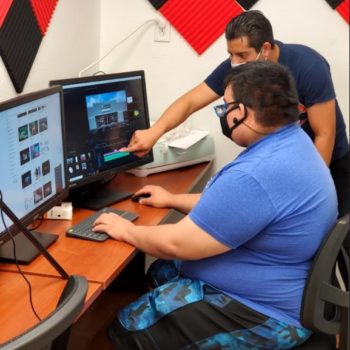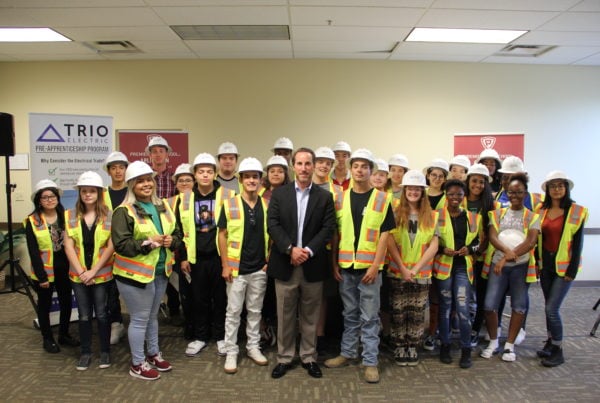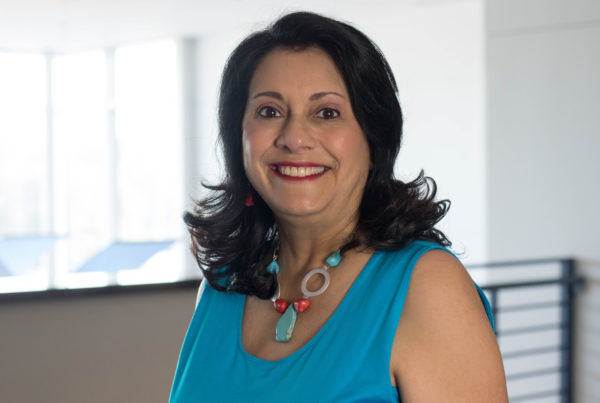Can you explain classical education? Many of us are at a loss for words to describe what makes it unique. If you speak to five classical educators, you will get five slightly different definitions of what a “classical education” is. But most explanations share some commonalities.
Classical education–
- Resembles how education was traditionally handled in Western civilization up until about 1880 or 1890– but its subject matter is not limited to just Western civilization.
- Is based on the seven liberal arts. The point of the liberal arts (liberal in the sense of liberating or “freeing”) is to free the student from the need for a teacher, by equipping them with the tools for self-directed learning.
- All subjects are taught in all grades, but each stage has its own focus.
- Usually is divided into the Trivium and the Quadrivium.

Photo courtesy of Richardson Classical Academy.
- The three stages of the Trivium are aligned with the natural development of a child, guiding them to learn what they are naturally ready to learn when they are naturally ready to learn it. These are not hard and fast divisions, but rather gradual shifts.
- Grammar stage: Roughly grades 1-4. Students learn facts and are exposed to great stories, poems, and works of art and music. Asks, “Who, what, where, and when?”
- Logic (Dialectic) stage: Roughly grades 5-8. The literature gets longer; students begin to notice principles and relationships; students are taught to argue persuasively in both speaking and writing.
Asks, “Why?” - Rhetoric stage: Roughly grades 9-12. Students are taught logic, articulation, and often will read the “great books.”
Asks, “How?”
- The Quadrivium (upper high school /college level) tackles advanced mathematics, geometry, music, and astronomy (which really means all the sciences.)
- The three stages of the Trivium are aligned with the natural development of a child, guiding them to learn what they are naturally ready to learn when they are naturally ready to learn it. These are not hard and fast divisions, but rather gradual shifts.
Philosophy: Classical educational paradigms differ from those of standard educational paradigms. A classical education–
- Purposefully seeks to cultivate wisdom and virtue, develop imagination, and foster true joy in learning.
- Focuses more on the tools of learning than on the content.
- Considers that knowledge has a purpose unto itself, and is not acquired merely for practical purposes, while simultaneously recognizing the value of practical applications.
- Sees all knowledge as being interconnected.
- Holds a very high view of the human person, always considering children to be fully human persons.
How it looks in the classroom: Classical education usually–
- Is heavily word-centered, emphasizing reading, writing, recitation, and formal conversations.
- Is often history-centered.
- Usually includes Latin (or Greek) for development of a strong vocabulary and for logic study. Together, Latin and Greek root words account for about 80% of English words.
- Includes narration, transcription, picture study, outdoor nature study, art, music, and opportunities to see and perform in theater.
- Teaches formal Logic classes in middle to upper grades.
- Teaches civil discourse directly, via structured conversations about the subject matter, through Socratic seminars.
- Reads whole unabridged books rather than basal readers.
- Asks the student to ponder and reflect, with questions such as, “What does this make you wonder?”
- Expects the teacher to never stop learning.

Photo courtesy of Corinth Classical Academy.
For more information and details, here are some recommended websites:
Understanding the Trivium (and Quadrivium):
https://www.hillsdale.edu/hillsdale-blog/academics/understanding-trivium-quadrivium/
http://www.triviumeducation.com/the-trivium-and-children/
Understanding Socratic Seminars:
https://www.paideia.org/about-paideia/socratic-seminar/
https://www.facinghistory.org/resource-library/teaching-strategies/socratic-seminar
More about the “great books”:
https://en.wikipedia.org/wiki/Great_Books_of_the_Western_World
http://www.bopsecrets.org/gateway/book-lists/greatbooks.htm
For more information on how to enroll your student in the classical education program offered at ResponsiveEdⓇ, please click here.
About the Writer:

Robin Johnston is a Classical Curriculum Specialist at ResponsiveEd, one of the largest public charter school systems in the nation. Prior to coming to ResponsiveEd, Johnston enjoyed 17 years of working as a middle and high school teacher. Johnston has a passion for classical education, specifically the subjects of English Language Arts and Reading (ELAR) and History.
![]()




